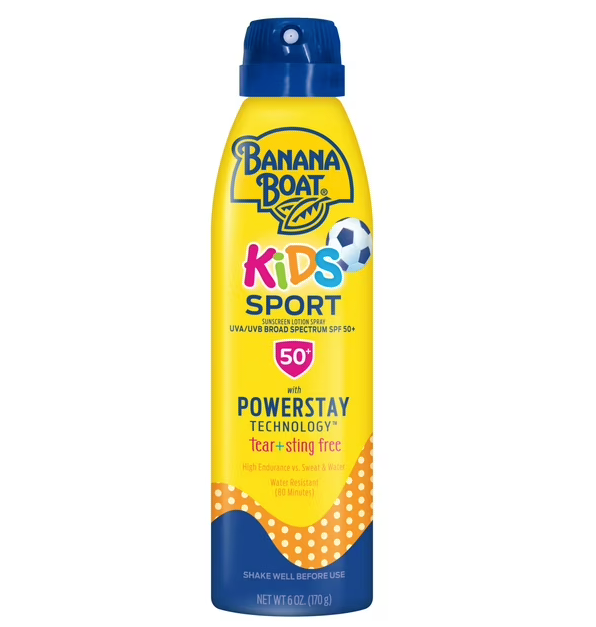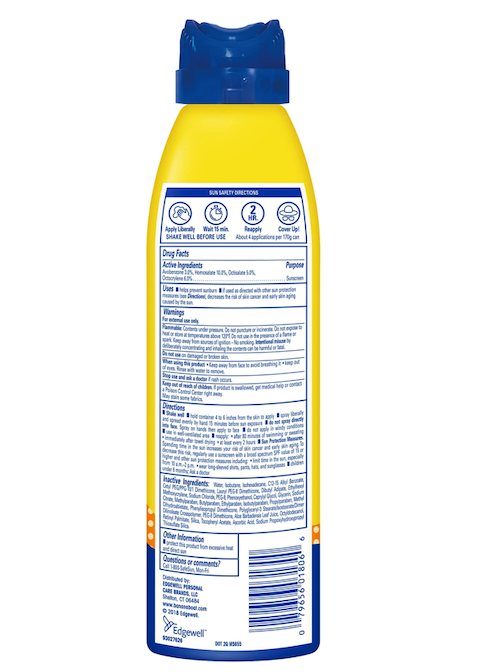Pro / Cons of Spray Sunscreen vs. Lotion Sunscreen
As the sun's rays become increasingly potent, safeguarding our skin from harmful UV exposure is paramount. The plethora of sunscreen options can be overwhelming, but two popular choices stand out: spray and lotion. In this blog post, we'll explore the pros and cons of each to help you make an informed decision about which type of sunscreen suits your needs best.
Pros and Cons of Spray Sunscreen:
Pros:
- Ease of Application: One of the primary advantages of spray sunscreen is its ease of application. It allows for quick and even coverage, making it convenient for those hard-to-reach areas like the back.
- No Residue: Spray sunscreens typically leave little to no residue on the skin. This can be appealing for individuals who dislike the sometimes greasy or sticky feeling associated with lotion sunscreens.
- Reapplication Made Simple: Reapplying sunscreen throughout the day is crucial for effective protection. Spray sunscreens facilitate quick touch-ups without the need to rub in the product, making it less likely to disturb makeup or irritate sensitive skin.
- Reduced Product Waste: Spray sunscreens often result in less product waste compared to lotions. The aerosol format allows for controlled dispensing, reducing the likelihood of applying more product than necessary.
Cons:
- Incomplete Coverage: Achieving thorough coverage can be challenging with spray sunscreens. Wind can disperse the product, leading to uneven protection. It may be difficult to gauge whether you've applied enough, increasing the risk of sunburn.
- Air Quality and Ozone Depletion: Aerosol sunscreens release volatile organic compounds (VOCs) into the air, contributing to air pollution. Some spray sunscreens also use hydrofluorocarbons (HFCs) as propellants, which can have a negative impact on the ozone layer.
- Microplastics: Certain spray sunscreens may contain microplastics in the form of tiny particles. These microplastics can end up in the oceans, posing a threat to marine life and ecosystems.
Pros and Cons of Lotion Sunscreen:
Pros:
- Thorough Coverage:Lotion sunscreens are generally considered more effective in providing thorough coverage. The act of rubbing in the product ensures that it reaches all areas of the skin, reducing the risk of sunburn.
- Better for Sensitive Skin:Lotions are often a better choice for individuals with sensitive or acne-prone skin. They tend to have fewer ingredients that could cause irritation, and the rubbing action can be gentler than the forceful spraying of aerosols.
- Varied Formulations: Lotions come in various formulations, including water-resistant and sweat-resistant options. This versatility makes it easier for individuals with different skin types and activity levels to find a suitable product.
Cons:
- Sticky or Greasy Feeling: One of the most common complaints about lotion sunscreen is the potential for a sticky or greasy feeling on the skin. This texture can be uncomfortable, especially in hot and humid conditions.
- Slower Application: Applying lotion sunscreen may take a bit more time, especially when covering larger areas of the body. This can be less convenient for those who prefer a quick and easy application process.
- Potential Staining: Some lotion sunscreens may leave stains on clothing, which can be a drawback for those who want to protect their skin without ruining their favorite outfits.
- Packaging Waste: Lotion sunscreens often come in plastic bottles, contributing to the issue of plastic pollution. While some brands use recyclable packaging, it's essential for consumers to properly dispose of these containers.



